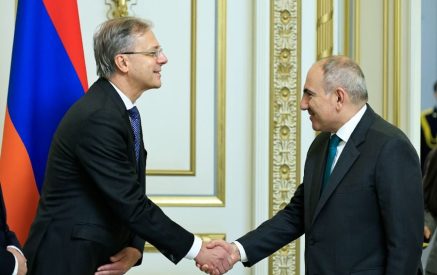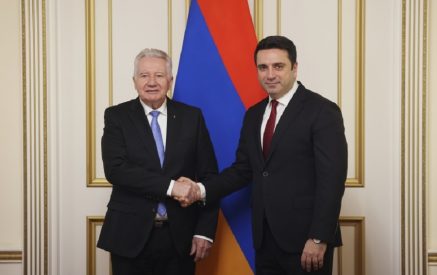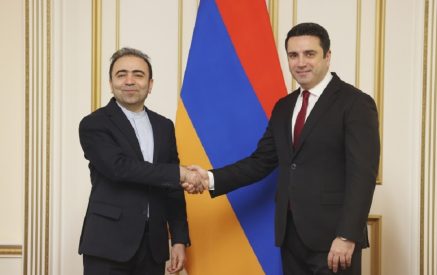The bombing that killed Lebanon’s intelligence chief also claimed the life of a working mother. Robert Fisk reports from Beirut

Gun battles enshrined the streets of central Beirut a day after the nation buried Brigadier-General Wissam al-Hassan. But the bravest man in Lebanon yesterday stood in a church in the tired suburb of Bourj Hammoud: a young Armenian whose equally young wife was slaughtered last Friday.
I suppose we scribes always go for the Big Story – the Lebanese intelligence boss blown to bits in the Syria-style bomb assassination. The clichés are essential, as is the assumption that Syria’s war is “slipping across the border”, but the tragedy of Georgette Sarkissian should be told.
She was a victim whose life was every bit as precious as that of the man who was buried with such pomp and violence in central Beirut at the weekend. And if serving coffee and apples to bank employees in a narrow east Beirut street was less romantic than that of the Lebanese secret policeman so efficiently liquidated last week, her family story is worthy of a book rather than a newspaper article.
The General and Georgette died, of course, in the same millisecond.
Joseph Sarkissian’s family came from the Mount of Olives in Palestine and his grandparents were thrown out of Armenia during the 1915 Turkish genocide. He stood next to his 21-year old daughter Therese – who was with her mother when she was killed, and wore a blood-red mascara of spotted wounds on her face that contrasted tragically with her black dress – shaking hands as one must at these awful “condolences”, and spoke with such eloquence of his sorrow. In Lebanon, the big men get the imperial funerals, the little women are left to be buried.
But the biggest man in Lebanon was Joseph Sarkissian, an insurance official, short dark hair, spectacles, no tears in his eyes. In his own words, then, in perfect, flawless English: “I can’t tell you… She is half my life. My daughter picked her up from the ground – she carried her in her arms because there were no ambulances, and drove her to the hospital in her own car.
“From the first, my wife was in a coma, thanks to God – because her head was opened from behind by the explosion. Part of her brain was missing. She is a treasure to me. You can’t imagine… There were so many flowers for her and for me – because everyone loves her and everyone loves me.
“In Lebanon, there are too many surprises – every day, there is a new surprise. She was going to buy new shoes the same day. Today was the first day of her vacation. She wanted to rest this week – and now she rests forever.”
Today was a day for such words. There was the local bank manager in rue Mohamed el-Mounzer who said Lebanon had endured “40 years of crucifixion” and that during the country’s 1975-1990 civil war, “not a pane of glass had been broken in the street”. There was the old man – like most of the others, a Christian – who uttered a quote-of-the-year in reference to General Hassan. “He was very low profile – everyone knew him,” he said. Too true. General Hassan, a Muslim, thought he had a “safe house” in the street. But there are no “safe houses” in Lebanon, and – being a tiny little country – no “secret” policemen.
At the end of the road, I came across Lebanese ceramist Nathalie Khayat, bandages still covering the wounds to her back, who had been talking to her sons Noa and Teo when the bomb shredded Georgette’s life – and those of the general and two of his men – and almost killed her. “The first thing I thought of was the civil war,” she said. “I was looking at my son’s homework. He is nine today. And I was nine when the civil war started in 1975.”
The radios were talking of a gun and grenade battle between supporters of the 14 March alliance – the official opposition to the pro-Syrian government – and the Lebanese army which had come under fire from them during the night. And Abed, my driver, and I drove as we have so often these past decades to park near the museum, and I ran down the side street and stood next to the soldiers. And here comes your reporter, clumping into his own story again. On this very spot, beside this very road, next to this very wall, I took cover from bullets 36 years ago.
Independent



















































